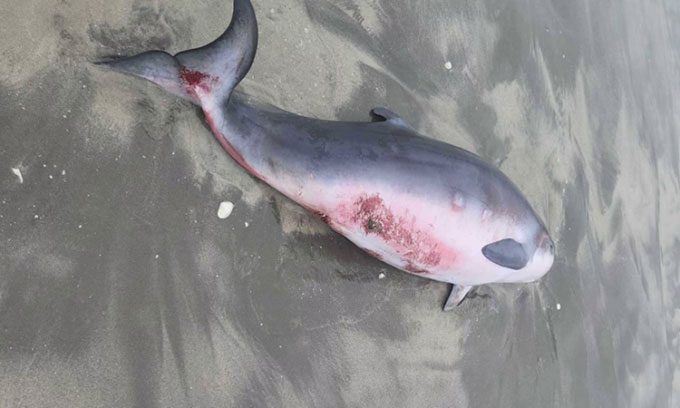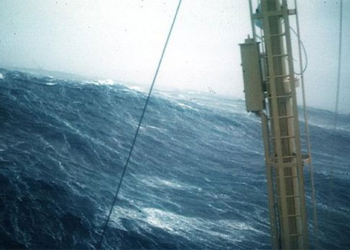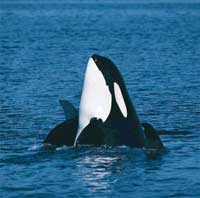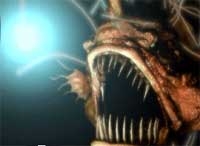A shark kills a stranded pygmy sperm whale mother in Māhia Bay, leaving its calf alone on the beach.
A massive shark bit the head of a pygmy sperm whale in New Zealand while rescue workers stood waist-deep in water trying to push the whale back to sea, according to Live Science. The creature, suspected to be a great white shark (Carcharodon carcharias), returned 30 seconds later to eat the whale carcass, witnesses reported. The incident occurred in Hawke Bay on the Māhia Peninsula after the pygmy sperm whale (Kogia breviceps) and its calf became stranded on the beach.

The pygmy sperm whale calf was euthanized for scientific research. (Photo: Hawke’s Bay Today).
Chad Prentice, the police officer in charge of the Māhia area, shared that the shark, measuring over 5 meters, killed the pygmy sperm whale instantly. “Witnesses said that the shark initially struck the pygmy sperm whale, then surfaced and bit off its head. Not many sharks can do that,” Prentice said.
The mother pygmy sperm whale was 3 meters long. While the rescue workers ran to the shore unharmed, the shark swam off with its prey, turning the water red. The pygmy sperm whale calf remained stranded after the attack, alone without its mother. Ultimately, authorities had to euthanize it for research to understand the cause of the stranding.
New Zealand is known for incidents of marine mammals stranding. Typically, 1 to 2 animals get stuck in shallow waters, but sometimes large pods strand together. The largest mass stranding in the country’s history occurred in 1918, involving 1,000 pilot whales, according to the Department of Conservation (DOC) New Zealand. Many stranded marine mammals are sick when they wash ashore, but there can be multiple factors leading to such events, and researchers still have much to learn about the phenomenon.
The DOC had previously warned of increased shark activity around Māhia Bay in January after 45 orcas and bottlenose dolphins stranded and had to be euthanized. Several shark species are known to prey on sick whales and dolphins, including their carcasses, and might be attracted to stranding areas. These species include seven-gill sharks, blue sharks, tiger sharks, and great whites, according to Clinton Duffy, a technical advisor for the DOC. Daren Grover, manager of the charity Project Jonah for marine mammals, stated that it is normal for sharks to hunt weak animals as they are opportunistic feeders.





















































